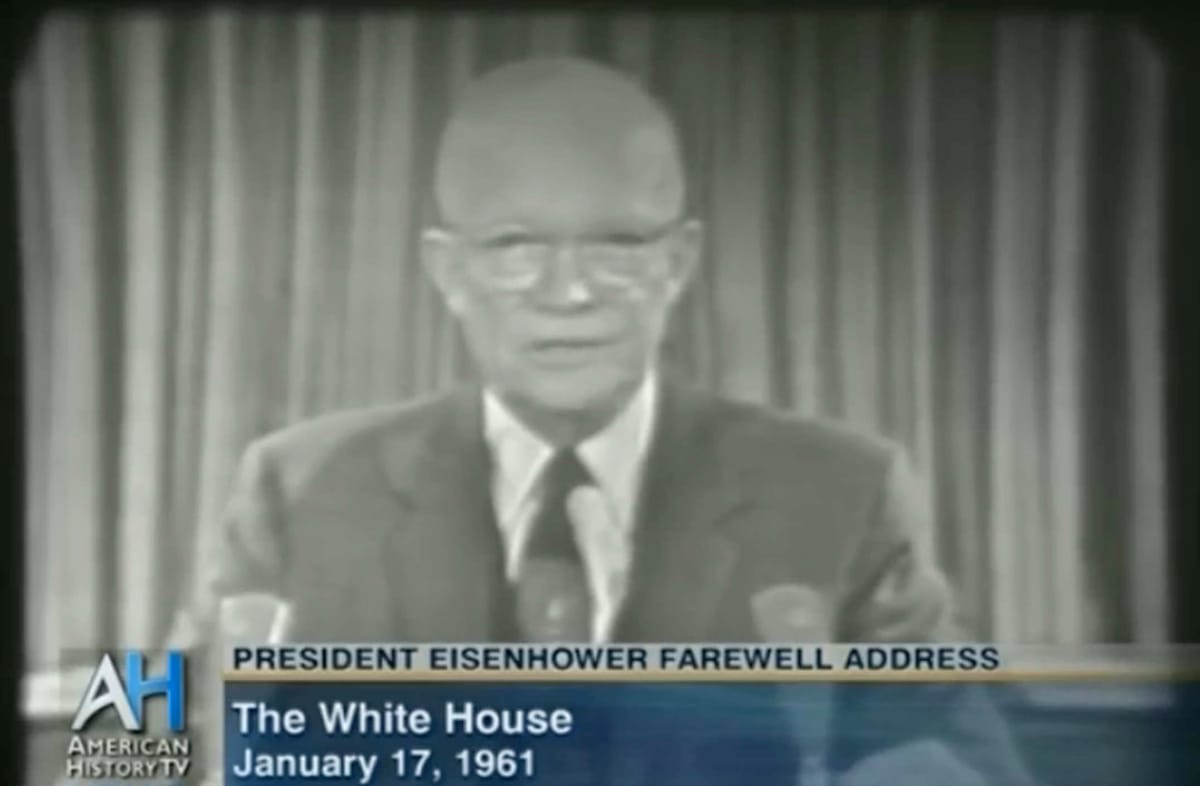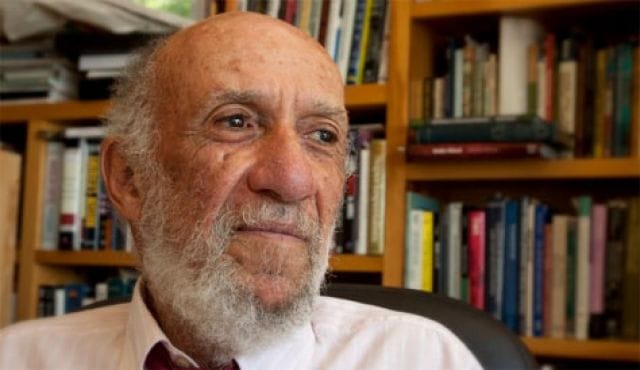Against Militarism

by Professor Richard Falk.
Adapted from a speech given by Richard A. Falk on 9 December 2023 at The International Convention Against War and Destructive Use of Science: Scientists Against Israeli Apartheid, Occupation and Genocide in Gaza.
I find the initiative that the organizing committee has taken in producing this convention to be a glimmer of light in a dark sky. A dark sky that is dominated by the most transparent instance of genocide in human history.
Where because of the capacity of worldwide media to show the daily unfolding of this terrible criminal action in Gaza and its related effects in the West Bank as well, the peoples of the world are exposed as never before to the concrete exposure of genocide in real time. Past genocides, even the Holocaust, have always been something relatively abstract from our consciousness, with its horrifying realities exposed long after the mass killing has stopped. This immediacy and unmistakable reality of the Gaza genocide, including the exposure of its sadistic details, intensifies the challenge to the collective conscience of humanity.
What is happening in Gaza, it is not only a visible reality for the peoples of the world and the governments, the leaders and those in international institutions, it is also something that is reinforced by the explicit endorsement of such an approach to conflict as has been embarked upon by the leadership of Israel. Never has such a candid admission that one is striking against the people as a whole: cutting off their food and fuel and electricity, bombing their hospitals and places of shelter, targeting places where children and women gather. What is also shocking is that display of horror enjoyed the support and active complicity of several of the leading liberal democracies in the world. It suggests an imperial post-colonial posture toward the Global South in Western Europe and North America, which seems to be largely configured inter-civilizationally.
This Gaza onslaught is a dramatic horror story that makes this kind of transnational professionally grounded initiative against militarism so encouraging, a glimmer of light during dark times when many storm clouds hover close to planet earth. To oppose militarism in all its manifestations will hopefully become a dominant preoccupation of scientists and others, indeed for everyone with a global conscience to motivate them to feel that they must act responsibly in light of such developments that cloud the present and pose dire threats for the future.
Let me refer briefly to my experience with militarism and war-making. Having taught, as was said, at Princeton University for 40 years, I was surrounded by some of the world's leading scientists including Robert Oppenheimer, John Wheeler, Murph Goldberger, and Freeman Dyson and others of global stature. What intrigued me then was the degree to which these outstanding scientists were enticed by the opportunity to take part in the security dimensions of government policy, which included feeding the militarist appetites of the private sector, exerting an unhealthy influence on public opinion, domestic politics, and a bloated bilateral peacetime military budget over the years by grossly exaggerating security threats and by the economically motivated projection of American power worldwide. This kind of toxic connection between scientists and government policy which is probably more extreme in both its character and effects in the United States than elsewhere. being labeled by the US president ; the degree to which the US has the largest military budget and is by far the largest arms supplier in the world, making it the largest source of military hardware and software among the national merchants of death. The US President, Dwight Eisenhower warned Americans about the dangers of ‘the military-industrial complex’ in his 1961 Farewell Address, a warning that to this day goes unheeded. Eisenhower’s words are worth recalling:
“We must guard against the acquisition of unwarranted influence, whether sought or unsought, by the military–industrial complex. The potential for the disastrous rise of misplaced power exists and will persist.”
In actuality, the danger has increased in the last 62 years.
The other reinforcing experience I had was to visit the two leading nuclear strategic centers of global security policy, in the United States, and I take notice of two kinds of personalities that one encountered there. These were venues dominated by scientists.
One was a feeling that by contributing to the military development of weaponry and doctrine and so on scientists were somehow doing something in the “real world” and that this was a source of what struck me then as a kind of careerist excitement for them. And the other kind of scientific personality were people who didn't know a great deal about politics but were indoctrinated into an unquestioning acceptance of the prevailing ideology of the time and were Cold War activists in a very superficial yet dogmatic way, This led them to believe that their work that consisted of helping with the development of weapons and the worst kind of weapons was something that was positive, that it contributed to a better world, both guarding the peace against the ideological enemy in Moscow and making the world safe for market-oriented constitutionalism.
In other words, ideology underpinned this enthusiasm for robust connections between the scientific community militarism that was broadly present in the society and very very salient, at least in the United States, throughout the entirety of the Cold War—and actually after the Cold War—because it saw the opportunity (with the collapse of the Soviet Union) to become the unipolar dominant presence in the world and didn't have the imagination to choose anything other than the solidification of its military dominance as the path to establish and maintain its hegemonic role in international political life after the Cold. And this quest continues to guide American foreign policy despite rising resistance throughout the non-West. have focused on the United States partly because I know it best but also because I think it represents, in its own way, a powerful metaphor for the distortions that arise from this misbegotten marriage of militarism and knowledge as filtered through the brilliance of some of the world's finest scientists.
This kind of initiative, that you all are part of, is an overdue reaction. Perhaps the extremity of what's happening in Gaza made many of us, regardless of professional orientation, to act in anti-militarist ways that we were not motivated to act before. It overcame a human tendency toward complacency and the feeling of helplessness about taking on these larger issues.
But I think that one of the revelations of this outbreak of genocide in Gaza is the helplessness of the formal structures of war prevention and the protection of peoples against abusive behavior. The UN, which was supposedly created as a war prevention institution after World War II, was, in a sense, designed by its founders to fail because it gave the five most powerful countries in the world the authority to block any kind of effective response that might oppose or neutralize militarism and aggressive and criminal undertakings in the course of war, epitomized by vesting a veto power in the winners of World War II.
This awakening from decades of indulging militarism which I think is happening in many domains, not just among scientists. I'm part of a parallel initiative of so-called global intellectuals that is similarly awakening to the fact that if the peoples of the world do not take responsibility, nothing effective will be done to curtail the menace of militarism and destructive warfare.
And so, this initiative among scientists is systemically important, giving rise that it strengthens over time, and does not dissipate when the current crisis subsides.
There's one other general factor that hasn't often been considered, that despite this surge of militarism in the post-Cold War and present world: militarism hasn't produced political results associated with costly investments in achieving military superiority nationally, regionally, and globally. In the post-1945 period, the large investments in military capabilities have proved in most combat zones to be dysfunctional. In a series of symbolic activities that sought to bring to bear military superiority as a way of controlling the political outcomes in Global South combat zones have ended in political defeat for the side controlling battlefield results. And the assumption of those that make foreign policy for almost all leading governments is that history is constituted by those that prevail in military conflicts. That, in other words, that war and militarism continue to have the same historical agency that in earlier times allowed European colonialism to control most of the non-West.
But recent international experience defies that understanding and the US especially should have learned this by its decade-long experience in the Vietnam War. In that war the US had complete military dominance yet lost the war. It is important to understand that the lessons of that political defeat cannot be learned by these militarist governing elites. This is because there's too strong a vested interest in persisting with the belief that military agency is what controls political outcomes and shapes history, a view that although contrary to experience continues to prevail in the co-opted most influential media platforms throughout most of the world, reflecting as well as the decline of independent media in even the most respected political democracies.
If Vietnam wasn't enough of a pedagogic experience, then the 20-year commitment to state building in Iraq and in Afghanistan should have been a breakthrough that would encourage a more critical political consciousness in relation to military approaches to global security in the 21st century. But again, the energies of the militarist leverage within societies remained too strong to learn the lesson that in a post-colonial period of important powers, exhibited by persistent national mobilization in response to foreign intervention, that military superiority does not any longer produce favorable cost/benefit calculation. Any objective assessment of all the—not only the examples I've given—but Libya, Yemen, Syria, all these venues of military intervention produced devastation, to be sure. But they didn't satisfy the objectives of those who invested lives and trillions of dollars in achieving control the political outcomes, losing out both normatively and geopolitically as well.
Basically, that's a constructive reality, and it's not just applicable to the United States. All the colonial wars with European states were won by the weaker side militarily. And that's a terribly important lesson. Why it can't be learned is because it would undercut the profitability of the arms industry and the power of the military within governmental bureaucracies. So what was done after the Vietnam War was not a matter of controlling involvement or the preparation for less militarist, more prudent forms of security, but instead the development of new weapons and the employment of scientists in that process, that is, the cure for the failures of militarism is to invest more intelligently and even more expansively in militarism, a seeming unbreakable cycle that is not susceptible to repudiation by repeated experiences of failure and moral/legal outrage. It will take anti-militarist pressures generated from within civil society, and hopefully achieving global scope and influence.
In effort to control the media during future intervention, the popular slogan in the US was that the Vietnam War was lost not on the battlefield in Vietnam but in the American living room. The idea was that the media would be more subjected to the discipline of a militarized political consciousness was accorded by a high policy priority by think tank and foreign policy elites.
Let me bring these remarks to an end by going back to the Gaza reality for a moment and saying that the Israeli practice there of genocide is in a sense a recognition of the futility of war as between two military capabilities. This is a war against people. And it's a war that can be won only by the elimination or the dispossession of people. In that sense, it is a correct, perverse, and surrealistic recognition of the futility of conventional war as a way of shaping politics. It's a horrifying reaction to that futility by resorting to an explicit avowal of genocide as the basis of Israeli security and territorial ambition in a sense, particularly applicable in contexts of settler colonial projects that to succeed must eliminate or totally marginalize the indigenous population, making even longtime residents strangers in their own homelands.
So let me end by saying I applaud the draft Declaration, which I think is a very powerful document, and I hope that this initiative will lead to a worldwide process of anti-militarism and anti-war sentiment that will enlist powerful support from scientists and widespread respect from independent media, peace minded governments, and citizens of concern and conscience.
Thank you very much for giving me this opportunity to speak at this important occasion.
Professor Richard Falk is an international law and international relations scholar who taught at Princeton University for forty years. Since 2002 he has taught Global and International Studies at the University of California, Santa Barbara. From 2008 to 2014, Falk was a United Nations Special Rapporteur on the occupied Palestinian territories. He is the Chairman of the Board of Trustees at Euro-Med Human Rights Monitor.





Comments ()